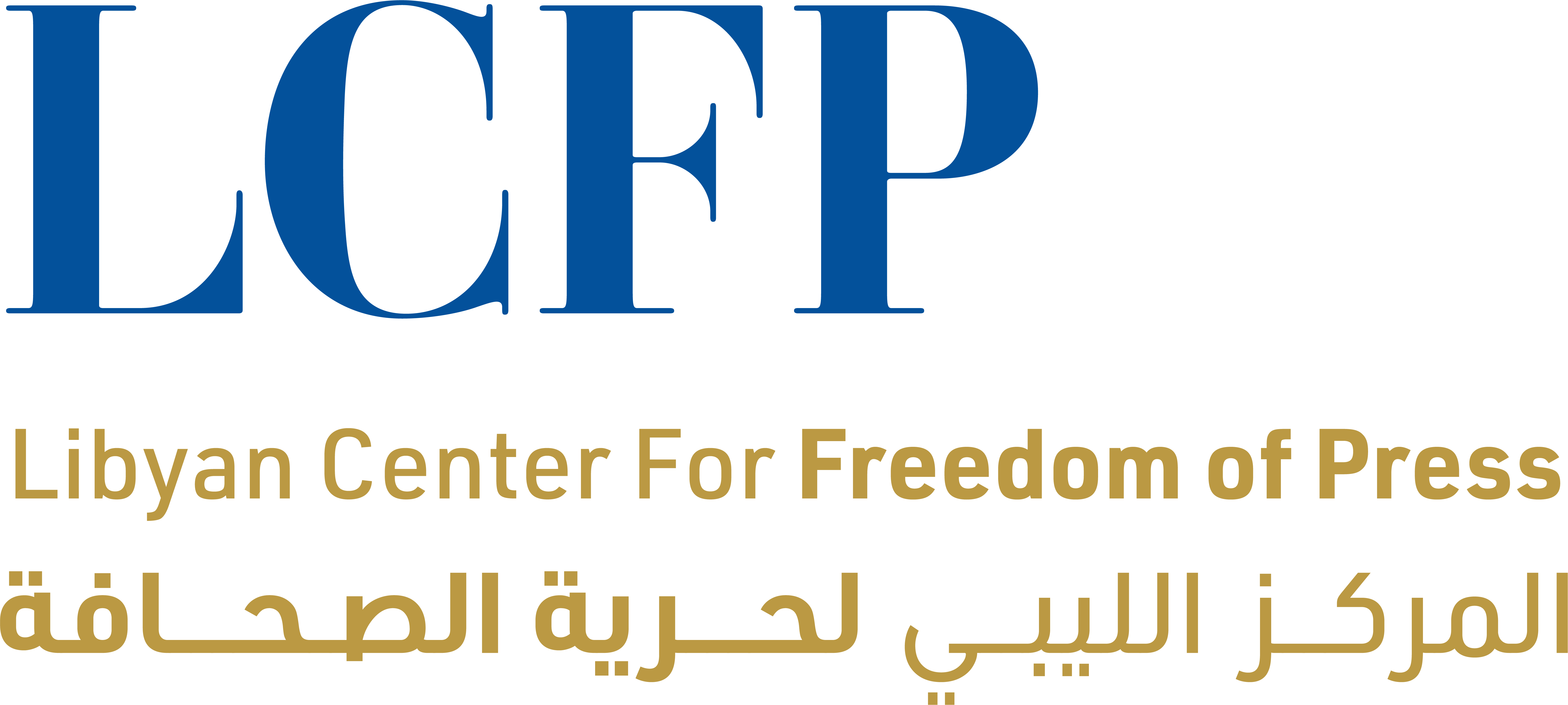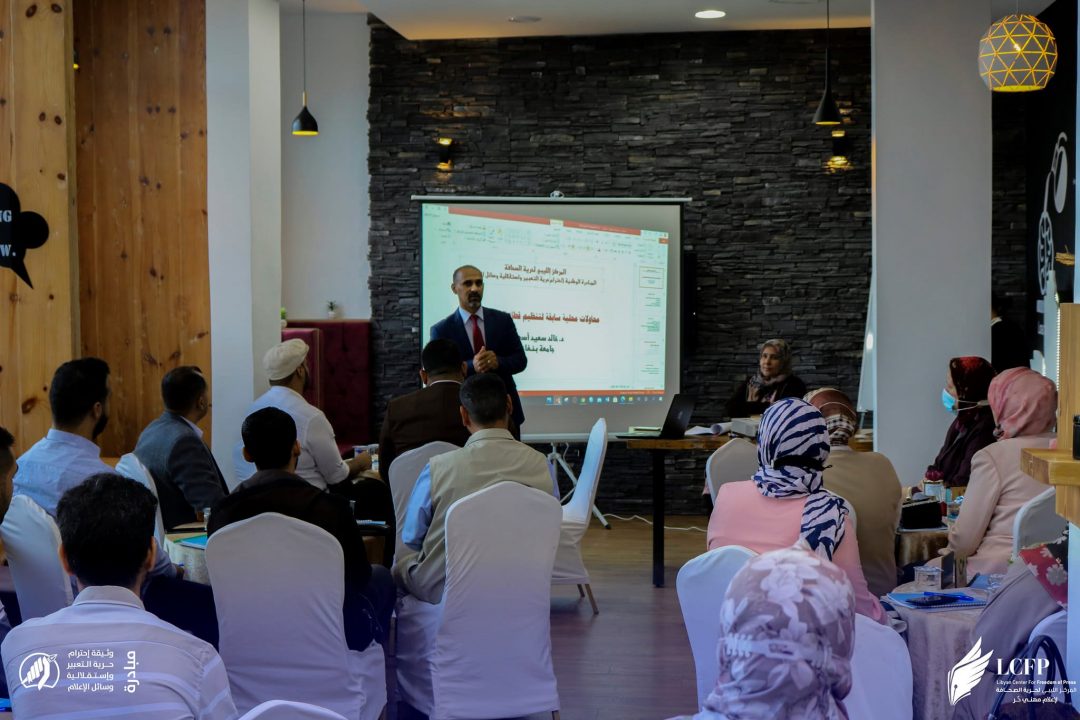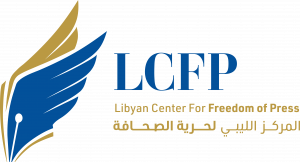Benghazi October 30
A discussion session was held in Benghazi city about the National Initiative for the drafting of a “document respecting freedom of expression and the independence of media institutions”. A group of journalists and academics attended the discussion session to discuss their vision for the structural and legal reform of the Libyan media sector. The session was organized by the Libyan Center for Freedom of Press (LCFP) in partnership with lecturers from the Faculty of Media, University of Benghazi
The participants discussed the legal framework required to regulate the radio and television work in accordance with international standards. They tackled the right to freedom of expression and the importance of enhancing the protection of reputation and privacy. They also discussed the responsibilities of the Libyan legislator towards the media sector and the importance of enacting new laws by the upcoming legislative authority
The participants stressed the need for drafting a law establishing the High Constitutional Committee for media in accordance with Article 174 of the constitution, chapter Constitutional Bodies. Article 174 provides for the establishment of the High Media Council as an independent authority over which only the judiciary has authority. The Council’s mission is to regulate the media sector. The participants agreed on the responsibility of the legislator in regulating the Sector by approving the bills of law that are being worked on
It is important to require private media institutions to disclose their sources of funding. The owners of private media institutions should be asked to provide adequate salaries, social coverage, medical insurance and compensation in cases of accidents, diseases and disabilities in conflict areas
The participants stressed the need to distinguish between the right to freedom of expression and the use of hate speech in the media or social media platforms. Legal texts should deter the use of words that fuel incitement and violence. There is a need to develop clear definitions of types of cybercrimes, and to ensure that stakeholders do not exploit cybercrime law to abuse their powers and prosecute activists and journalists
The participants agreed that it is necessary to have an independent national union to play its role in defending the rights of journalists and to issue a “professional journalist card”
This eighth session comes within the National Initiative for the drafting of a document respecting freedom of expression and the independence of media institutions, to which signatures will be collected from candidates to the upcoming presidential and parliamentary elections. It will be a pledge to work with journalists and civil society when deliberating on new bills


